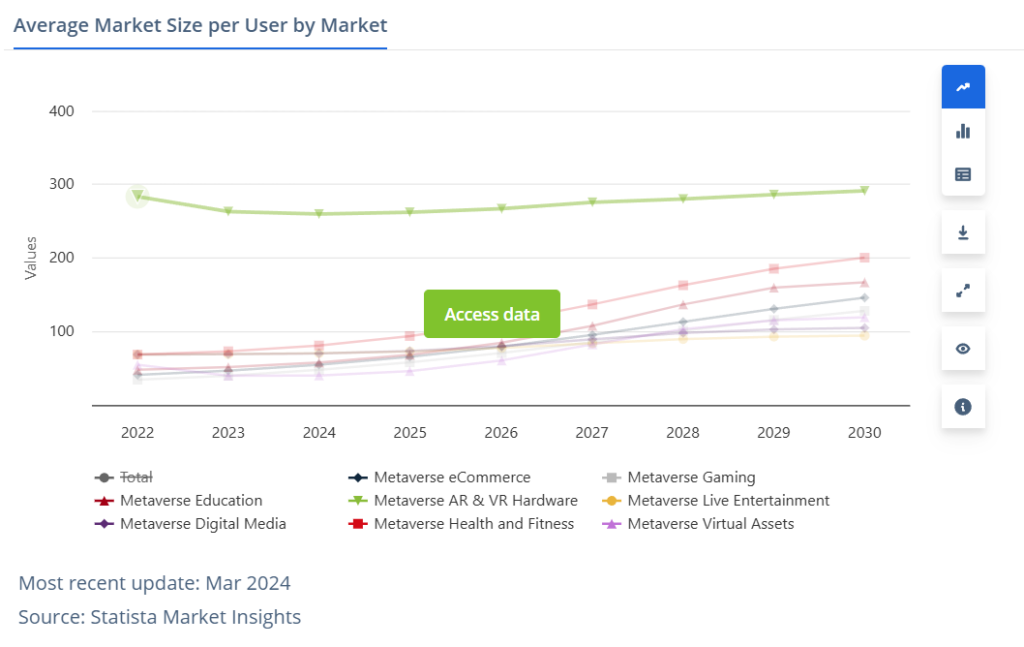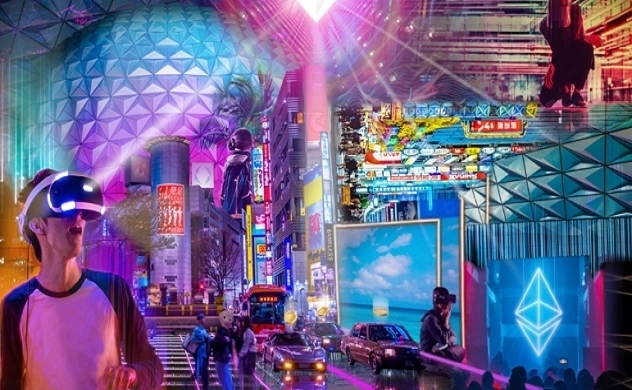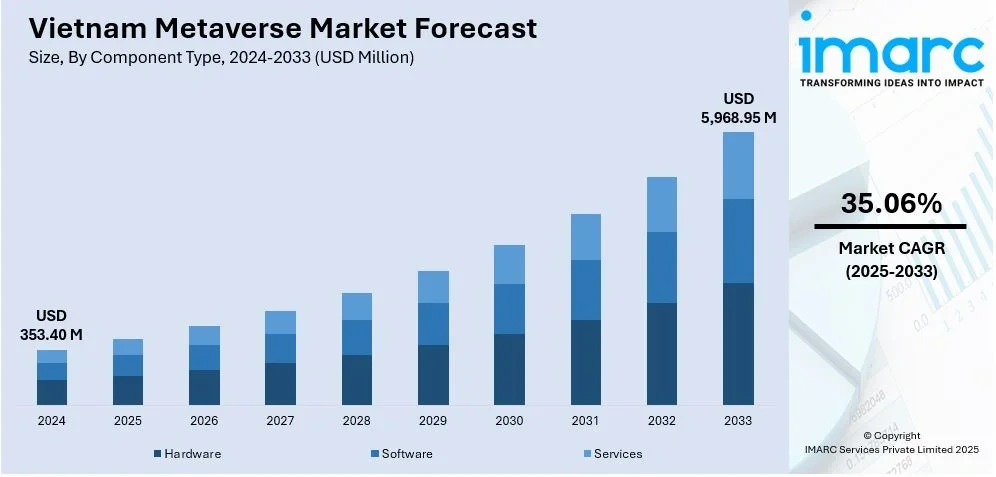Metaverse in 2025: Where Does the Trend Stand Now?
In 2021, the word metaverse exploded into the mainstream lexicon. Fast-forward to 2025, and the conversation around the metaverse trend has cooled, yet matured. No longer dominated by flashy demos and corporate hype, today’s metaverse landscape feels more grounded—and perhaps more relevant than ever in specific sectors like Web3 gaming and immersive tech applications.
This evolution is particularly noticeable in Southeast Asia, where countries like Vietnam are quietly redefining what the metaverse means through innovation, gaming culture, and digital infrastructure development.
Web3 Gaming Breathes Life into the Metaverse Trend

Credit from Statista
While the broad vision of a single, unified metaverse remains elusive, niche ecosystems like Web3 gaming have flourished. Gamers and developers are less interested in hyper-realistic VR worlds and more focused on interoperable economies and decentralized asset ownership.
Blockchain games like Axie Infinity—pioneered by a Vietnamese team—set the early tone, and in 2025, their legacy has expanded into more refined platforms. These platforms prioritize community governance, token-based economies, and sustainable gameplay models. Here, the metaverse trend feels less theoretical and more practical: a lived experience where digital identity and value creation are part of everyday play.
In Vietnam, this is more than a passing fad. The country’s large population of tech-savvy youth, competitive development costs, and growing startup ecosystem have positioned it as a dark horse in the regional metaverse race.
Vietnam’s Surprising Role in the Global Metaverse Scene

Credit from VietNamNet
At a glance, Vietnam’s role in the metaverse trend might seem under the radar. But behind the scenes, major moves are being made. Blockchain hubs have sprouted across Ho Chi Minh City, with Vietnamese blockchain gaming startups in 2025 gaining global traction.
Startups like Sky Mavis (still evolving) and newer entrants such as Ftribe Fighters and Sipher are exploring ways to blend AI, virtual social spaces, and blockchain-backed assets. In these communities, Web3 gaming in Vietnam is not just a business model—it’s a form of digital cultural expression.
As one developer put it at a local event this past May: “We’re not chasing the metaverse. We’re building it in our own language.”
Shifting Definitions: From Immersive Worlds to Layered Realities
In 2025, the term metaverse no longer implies a singular digital universe. Instead, it suggests a layered experience: partial VR, partial social network, partial economic engine. This transition is evident in how metaverse startups in Vietnam approach development. Many are less focused on headsets and avatars, and more interested in cross-platform access, smart contracts, and scalable communities.
Critically, the adoption of metaverse technology in Vietnam has found practical footholds—in education, virtual commerce, and hybrid remote working models. Rather than asking “What is the metaverse?” the local conversation has shifted to “What parts of it can we use today?”
Metaverse Trend Crypto and Caution: The Road Ahead

Credit from Nhip Cau Dau Tu
Of course, none of this unfolds in a vacuum. The Vietnam crypto trend has seen its ups and downs, mirroring global cycles. Regulatory frameworks remain in flux, and while enthusiasm is high, skepticism is just as present—especially from older generations and institutions.
Still, 2025 feels less like a bubble and more like a build phase. Developers, gamers, and investors alike are more pragmatic. They know what didn’t work in 2022 and are applying those lessons. And in a way, this maturity might be the best thing to happen to the metaverse trend.
Conclusion: Metaverse 2.0 — Smaller, Smarter, Still Relevant

Credit from IMARC Group
So, is the metaverse still relevant in 2025? In a quieter, more grounded way—yes. Especially where Web3 gaming and regional innovation intersect, like in Vietnam. The hype may have faded, but what’s left is something more durable: a decentralized vision of the internet, slowly materializing through games, virtual networks, and economic experimentation.
For those still paying attention, the metaverse trend hasn’t disappeared—it’s simply outgrown the buzzwords.




